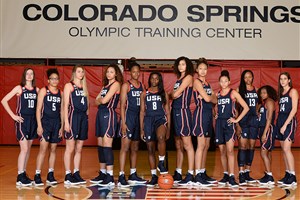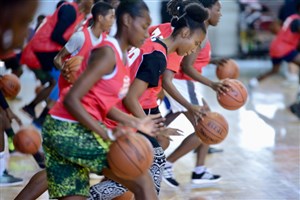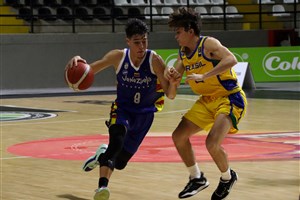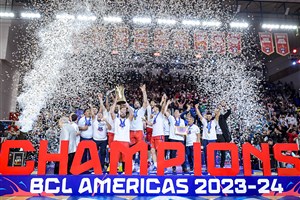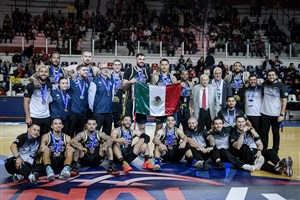
Honduras Mini Basketball's cultural diversity
TEGUCIGALPA (Honduras) - Mini Basketball is a ’worldwide movement that showcases the cultural diversity of communities or youth groups that make a mark and transform the development of the discipline. It's an example of how sport enables unity among children with different traditions, habits, nationalities, and personalities, but that share a common interest: the game of basketball.
Part of the dynamic of Honduras Mini Basketball is their principle of open participation, where children that belong to another country but have an interest in basketball are offered the chance of being a part of Honduran representations. Two pillars support this principle: cultural diversity (learning from other children about their environment and culture) and strengthening athletic development by learning basketball from these children.
Honduras offers the world an athletic movement that is rich in values such as sibling-hood and respect while fostering a transformation in how children learn: through observation and imitation.
“It's time for a new identity for Mini Basketball,” was the International Basketball Foundation’s proposal as they launched the world program to give a new boost to the discipline. Basketball plays a crucial role in bringing girls and boys from the ages of 5 to 12 to the sport. It's at those ages where children have their first contact with sports and particularly with team sports.

FIBA Mini Basketball organizes a welcoming space to worldwide development, fosters sharing and promotes the sport in healthy, fun, and accessible environments where there are no hurdles, stereotypes or differences. Their distinctive logo, an image representative of children’s basketball, identifies Mini around the world. Its rich and varied colors represent the movement’s diversity.
FIBA President Horacio Muratore said, “Mini Basketball is extremely important for the future of our sport. With this initiative, we can embrace the power of our sport and what can be done for its development.”
“We're exploring areas that were previously left out of the traditional portrayal of basketball — the psychological and emotional factors behind Mini Basketball. In this stage where Honduras’ Mini is portraying its personality, we need to know what they think, feel, what they're impressed by and what gets their attention, because their behaviors affect their willingness to play the game,” said to FIBA.basketball Carmen Cubas, Coordinator of Honduras Mini Basketball.
“We've detected 5 stages when we integrate a child from another nationality to our movement. First, the selection; the motives of why a specific child is chosen and invited to participate. Second, the integration; how the child gets involved in the group dynamic to find acceptance. Third, adaptation; the respect for individual differences among children, achieving a positive relationship and the capability of executing their role in the team. Fourth, their presence; feeling part of the group and committing to being the best they can naturally be. And fifth; the follow-up, where families and coaches of Honduras Mini Basketball analyze the post-participation process to examine the results of the full cycle,” explained Cubas.
Rodrigo García is an 11-year-old child born in Mexico that has lived in Panama for more than a year and played in the International Friendship Cup from June 3 to 7 in Panama to defend Honduras’ colors: “I was nervous when they told me about the Friendship Cup because I was going to play with new people and represent Honduras. I made several friends, I learned a lot from culture and people, they talked to me about their hobbies and invited me to visit their country. It was a great experience to participate in these types of tournaments.”
The directives of Honduras Mini Basketball gave Rodrigo personalized uniforms, t-shirts with the number he chose and sweats to remind him of his experience and to enable his integration.
The family is another one of the foundations of the development of children. If they accompany the process, the results will be highly positive. “We're very happy and honored that they invited Rodrigo to participate in the Honduras team. We realized that it's a team with a lot of valuable people and the coaches helped him feel integrated. For us, as parents, it’s been a great experience; and for him, something he didn’t expect and that he really enjoyed. This is the first time he participates in an international tournament,” said Lucía Iracheta, Rodrigo García’s mother.
Honduras Mini Basketball evaluated that the initiatives that promote the relationship between Honduran children and children of other nationalities were highly positive because, apart from participating in a festival, apart from taking home a medal, Mini Basketball’s most important value is making new friends.
FIBA

